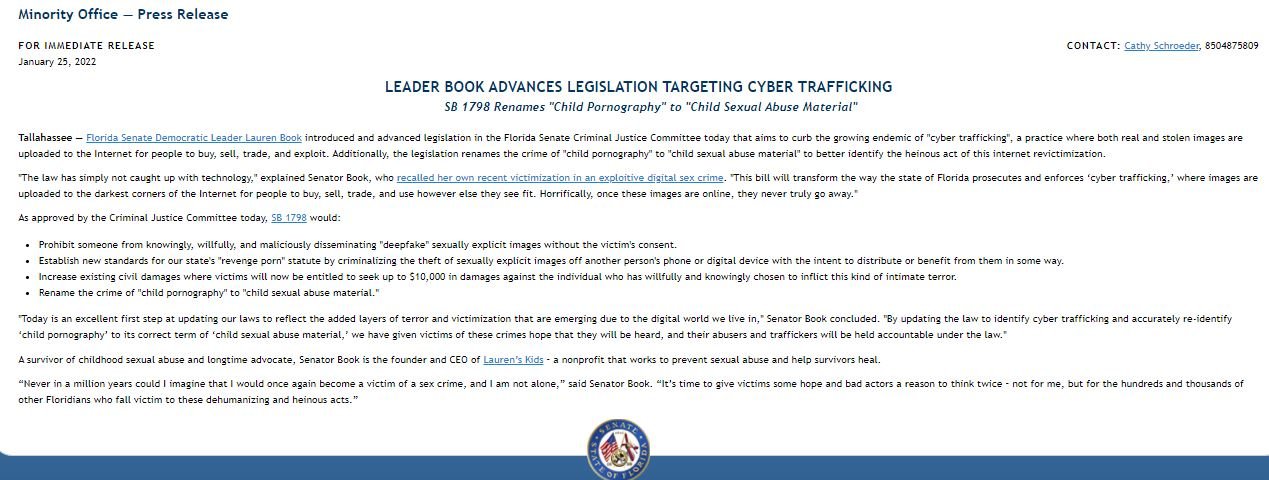A new bill introduced in Florida’s Senate seeks to ban what lawmakers define as unauthorized digital trafficking of counterfeit lewd content, establishing tough measures against the practice known as revenge and the malicious use of deepfake technology.
Bill 1798, introduced by Senator Lauren Brook, seeks to prohibit anyone from distributing false sexually explicit images, deliberately and maliciously without the permission of the people whose images were used to create this false content.

The project also contemplates the theft of sexually explicit images from victims’ electronic devices or online accounts in order to distribute them or benefit from this material in any form. Another relevant change is that the term “child pornography” will be replaced by the concept “child abuse material”, since the legislator believes that it is important to denote that any content of this kind constitutes a practice of abuse and exploitation.
If passed, this new legislation would allow victims of this class of cybercrime to file claims for damages up to $10,000 USD.
“This project will change the way the state of Florida processes cybercrimes, especially those in which images are uploaded to the darkest corners of the Internet for people to buy, sell, exchange and use in the way they see fit.”
Senator Brook has consistently pushed these kinds of initiatives, including acknowledging that she herself was a victim of abuse during her childhood and being the victim of a sextortion attempt in recent years: “This is the first step in updating our laws and reflecting the additional layers of victimization that are emerging due to the digital world we live in.” concludes Senator Brooks.
To learn more about information security risks, malware variants, vulnerabilities and information technologies, feel free to access the International Institute of Cyber Security (IICS) websites.
He is a cyber security and malware researcher. He studied Computer Science and started working as a cyber security analyst in 2006. He is actively working as an cyber security investigator. He also worked for different security companies. His everyday job includes researching about new cyber security incidents. Also he has deep level of knowledge in enterprise security implementation.
